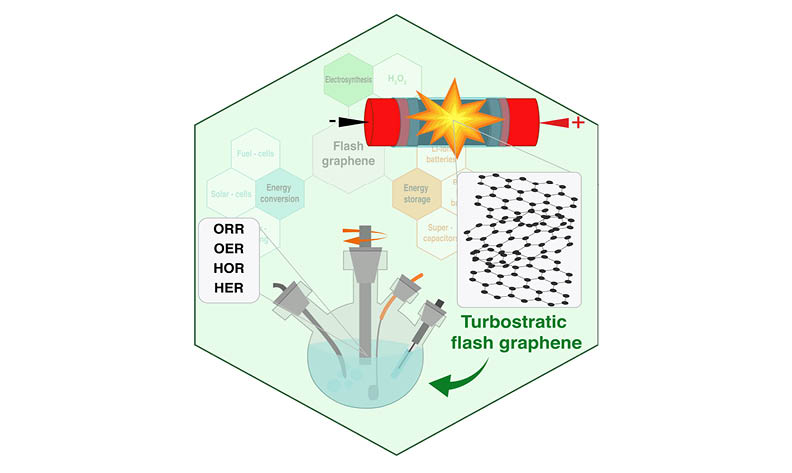Flash graphene: a sustainable prospect for electrocatalysis
DOI:
https://doi.org/10.17344/acsi.2024.8794Abstract
The increasing demand for sustainable and efficient energy conversion technologies requires ongoing exploration of new materials and methods. Flash Joule Heating (FJH) emerges as a promising technique for large-scale graphene production, boasting advantages over conventional methods. FJH rapidly heats carbon-based precursors to extreme temperatures using high electric currents, forming flash graphene upon rapid cooling. This approach offers rapid processing, high throughput, and can utilize diverse carbon sources, including biomass and waste, making it sustainable and cost-effective. Moreover, it generates minimal waste and yields flash graphene with enhanced conductivity, crucial for energy applications. FJH's scalability, versatility, and efficiency position it as a key method for commercializing graphene across industries, particularly in energy conversion. This review comprehensively discusses FJH synthesis principles, emphasizing efficiency, scalability, and sustainability. Additionally, it analyzes recent advancements in flash graphene-based electrocatalysts, exploring their impact on renewable energy and sustainable electrocatalysis. Challenges and opportunities are addressed, outlining future research directions. Continued advancements hold immense potential to revolutionize graphene production and integrate it into next-generation energy systems, driving the transition towards cleaner energy solutions.

Downloads
Published
Issue
Section
License
Copyright (c) 2024 Ivo Bardarov, Desislava Apostolova, Maris Minna Mathew, Miha Nosan, Pedro Farinazzo Bergamo Dias Martins, Bostjan Genorio

This work is licensed under a Creative Commons Attribution 4.0 International License.
Except where otherwise noted, articles in this journal are published under the Creative Commons Attribution 4.0 International License
